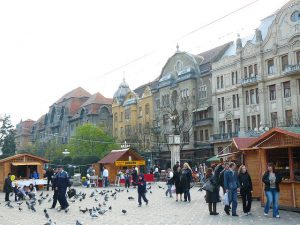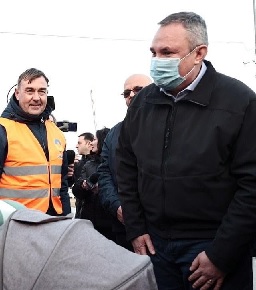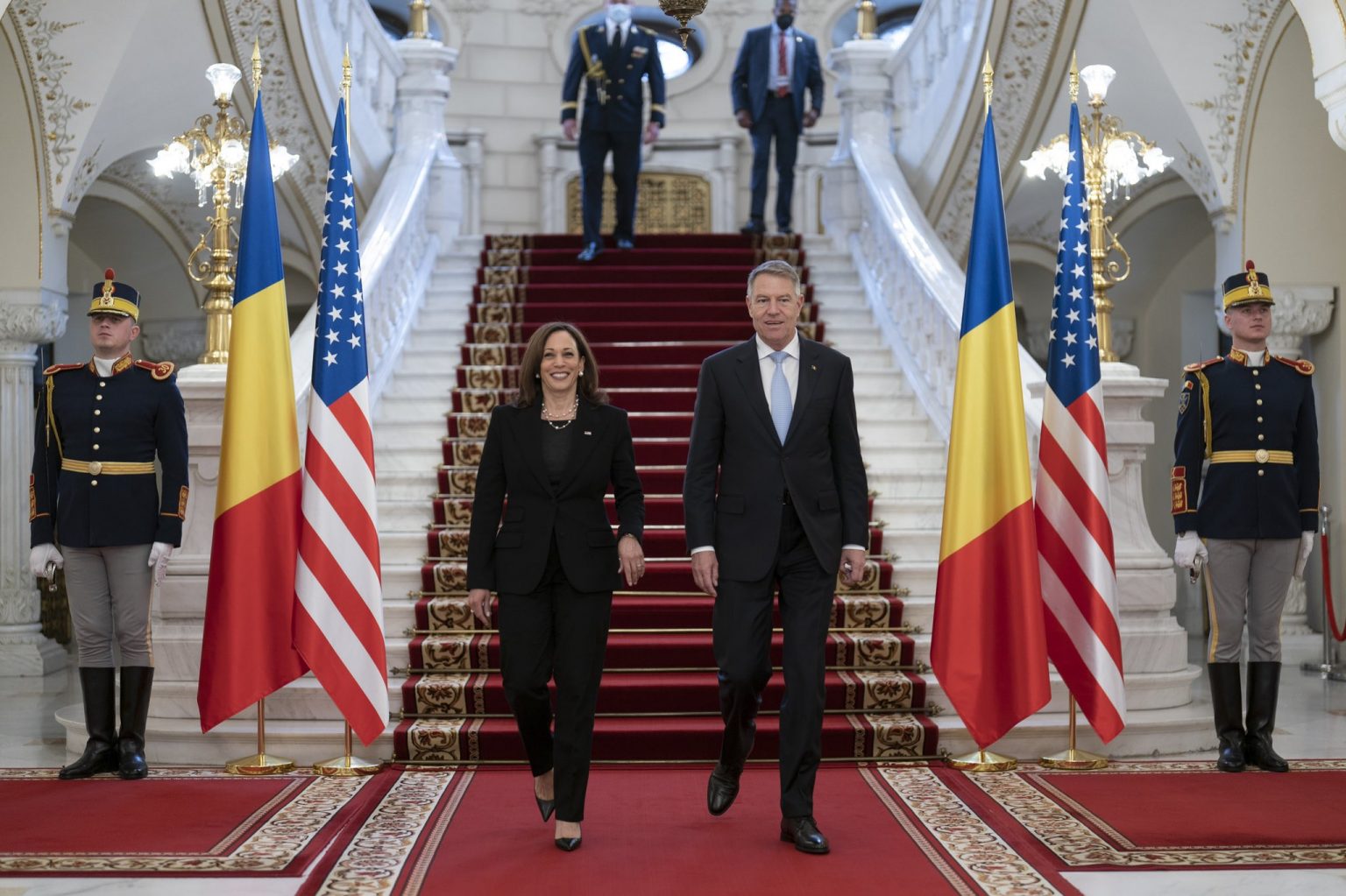Romania is a semi-presidential representative democratic republic, with the President representing the country internationally, signing some decrees, approving laws promulgated by parliament, and nominations as head of state.
Klaus Iohannis is the current President of Romania. He was elected in 2014 and reelected in 2020. He is the first Romanian President to be elected to a second term.
Iohannis was born in Sibiu, Romania, in 1959. He is a physicist and former teacher. He became involved in politics in the early 2000s, when he became the leader of the Democratic Forum of Germans in Romania (FDGR/DFDR).
In 2000, Iohannis was elected the mayor of Sibiu. He served as mayor for 14 years, during which time he oversaw the city’s economic development and its transformation into a major tourist destination.
In 2014, Iohannis was elected President of Romania. He defeated the incumbent President, Traian Basescu, in a runoff election. Iohannis ran on a platform of anti-corruption and economic reform.

As President, Iohannis has continued to fight corruption and to implement economic reforms. He has also worked to improve Romania’s relations with the European Union and the United States.
Iohannis is a popular figure in Romania. He is seen as a competent and honest leader who is working to improve the country.
The break in transmission occurred midway through a response by Mr Iohannis across all networks carrying the transmission as well as on the official website of the Romanian presidency.
The vice president was meeting with the Romanian president at the Cotroceni Palace in Bucharest on the third day of her visit to Europe.
Shortly before the feed from Romania was lost, Ms Harris said that there are no clear signs that Russian President Vladimir Putin is interested in relenting on his assault on Ukraine.
“The United States has been attempting sincerely to engage in diplomacy actively. And from everything that we know and have witnessed, Putin has shown no sign in engaging in serious diplomacy,” she said.
The Prime Minister is the head of government and is responsible for the day-to-day running of the country
Romania has a multi-party system, with legislative power vested in the government and the two chambers of Parliament: the Chamber of Deputies and the Senate. The judiciary is independent of the executive and the legislature.
The constitution provides for a President, a Parliament, a Constitutional Court, and a separate court system which includes the High Court of Cassation and Justice. The right to vote is granted to all citizens over 18 years of age. The Economist Intelligence Unit rated Romania as a “flawed democracy” in 2016.
Recent Political Developments
Romania has been in a state of political crisis since September 2021, when the ruling National Liberal Party (PNL) and the Save Romania Union (USR) fell out over a number of issues, including corruption, the rule of law, and the COVID-19 pandemic.
The crisis led to the resignation of Prime Minister Florin Cîțu and his government, and the appointment of Nicolae Ciucă as the new Prime Minister.
The Liberal National Party (PNL) proposed Ciucă as Defence Minister of the First Orban Cabinet. He was transferred as a reserve on 28 October 2019, succeeding as Romanian Chief of Staff Daniel Petrescu.

He became Minister of Defence of Romania on 4 November 2019. In October 2020, he joined the National Liberal Party (NLP) to run as a senator for the Romanian Senate in that year’s legislative elections and was subsequently elected as well.
On 7 December 2020, following the resignation of Prime Minister Ludovic Orban, he was appointed interim Prime Minister by Iohannis. He led the government as caretaker until a new coalition government was formed on 23 December under Florin Cîțu following the result of the 2020 Romanian legislative elections.
After the Cîțu cabinet was dissolved by a motion of no-confidence on 5 October 2021, Iohannis appointed Ciucă as prime minister-designate on 21 October 2021.
The Democratic Alliance of Hungarians in Romania (UDMR/RMDSZ) quickly agreed to renew a minority government with the GNP, the Social Democratic Party (SDP) offered to temporarily support it during the COVID-19 pandemic in exchange for accepting 10 measures.
The political crisis has had a significant impact on Romania’s economy and society. The country’s economic growth has slowed, and there have been protests and demonstrations against the government. The crisis has also raised concerns about Romania’s commitment to democracy and the rule of law.
The Future of Romanian Politics
The future of Romanian politics is uncertain. The country is facing a number of challenges, including corruption, the rule of law, and the COVID-19 pandemic. It is unclear whether the current government will be able to address these challenges and restore stability to Romanian politics.
However, there are also reasons for optimism. Romania has a strong democratic tradition, and its citizens are committed to democracy and the rule of law. The country also has a strong economy and a growing middle class. These factors could help Romania to overcome its current challenges and build a more prosperous and stable future.


